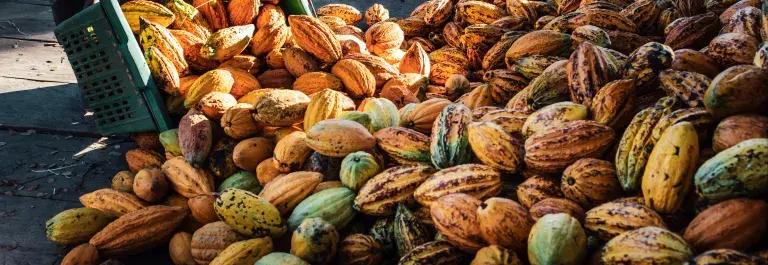New case study | Navigating EUDR: compliance and beyond – Cocoa
This is the second in our series on deforestation-risk commodities, exploring how credible voluntary sustainability standards (VSS) can support businesses navigating evolving market requirements while advancing broader sustainability goals and smallholder inclusion in supply chains.
Sustainability legislation like the EU Deforestation Regulation (EUDR) is reshaping global supply chains, with major implications for the cocoa sector. While it has the potential to accelerate the transition to more sustainable practices, it also presents real challenges – particularly for smallholder farmers in countries like Ghana and Côte d’Ivoire.
Our latest case study highlights how credible sustainability systems such as the Rainforest Alliance and Fairtrade International – with decades of on-the-ground experience – are helping businesses meet these requirements.
Through robust tools, data systems, and collaborative approaches, they not only support companies on their compliance journey but also tackle root causes of deforestation such as poverty and insecure land rights, helping to build more resilient supply chains.
Building on this framing, we hosted a webinar on 22 September with insights from the Rainforest Alliance, Hershey’s, and the Cocoa Abrabopa Association, a farmer-based producer organisation in Ghana.
The discussion emphasised the importance of balancing compliance with inclusivity and ensuring farmers are not left behind in the shift towards deforestation-free supply chains. The recording will be available via the case study page.
Stay tuned for ISEAL’s third series instalment that will focus on the soy sector.
